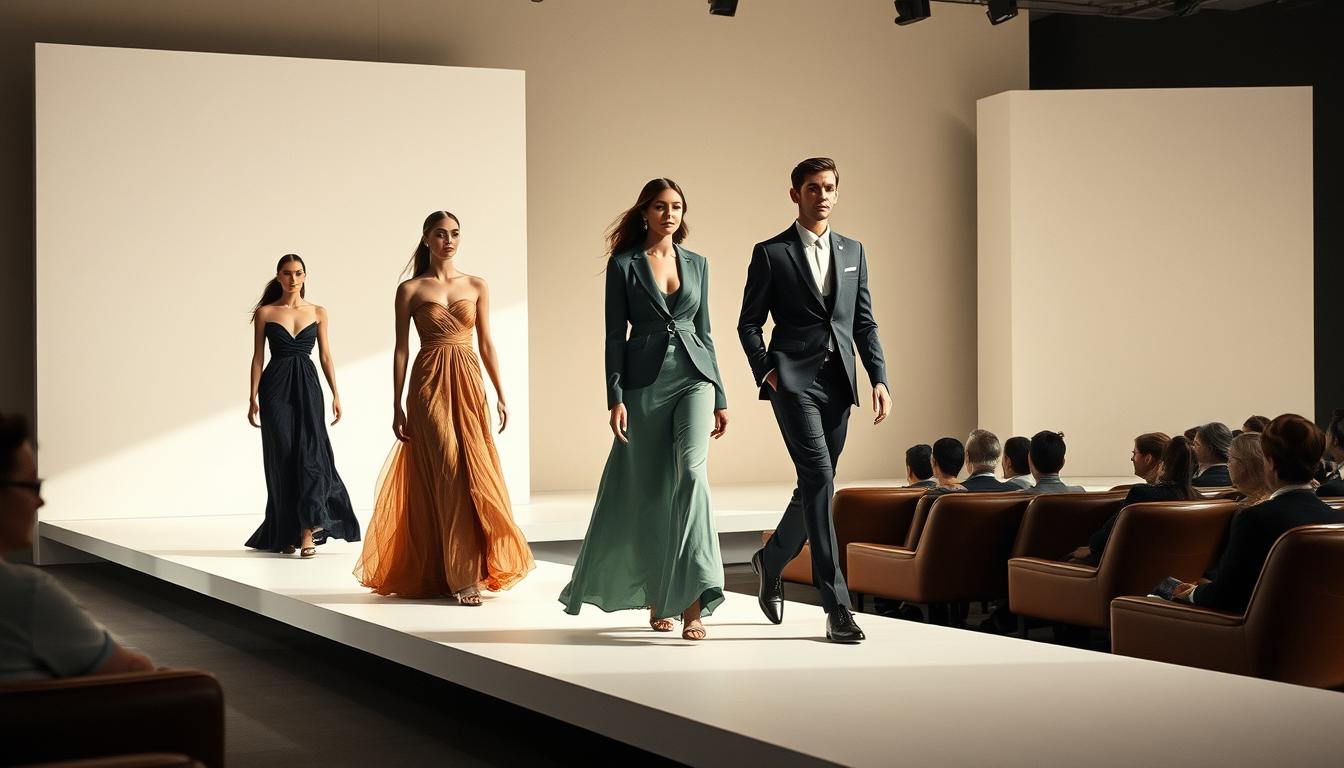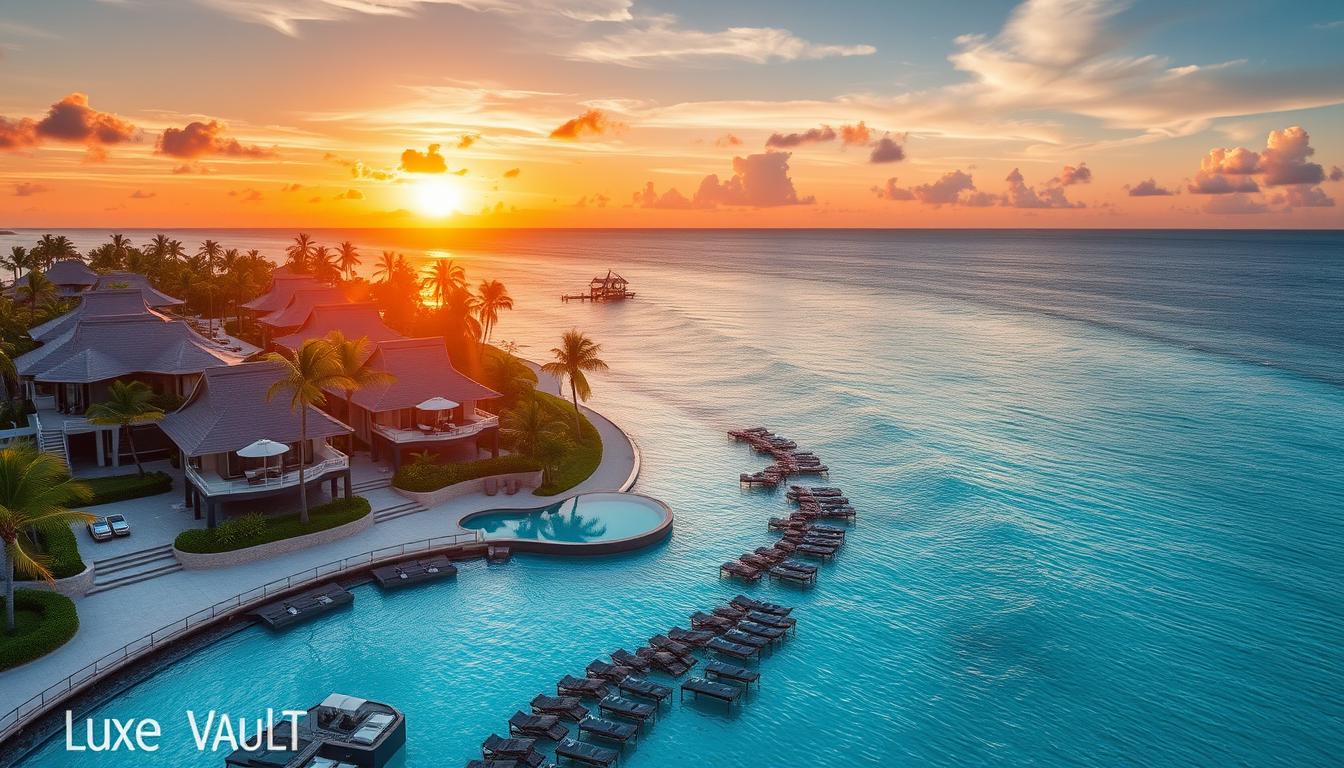The luxury goods industry is undergoing a significant transformation. As of 2025, sustainability has become a central theme in high-end product development and marketing.
We’re witnessing a fundamental shift in how luxury is perceived, with consumers increasingly valuing ethical production and sustainable materials as much as craftsmanship and exclusivity.
At CoWrit Technologies Inc, we understand the importance of effectively communicating sustainability initiatives to connect with today’s discerning luxury consumers.
Key Takeaways
- The luxury industry is embracing a new hybrid model that blends exclusivity with accessibility.
- Consumers are valuing ethical production and sustainable materials in luxury goods.
- Innovative materials and cutting-edge technologies are reshaping the luxury market.
- Premium brands are merging opulence with environmental responsibility.
- Sustainability is now at the forefront of high-end product development.
The Evolution of Luxury: Where Sustainability Meets Opulence
We’re witnessing a paradigm shift in the luxury sector, where sustainability and opulence are no longer mutually exclusive. The luxury industry is embracing a new era of responsibility, driven by changing consumer expectations and values.
The Shifting Definition of Luxury in 2025
The traditional markers of luxury—rarity, craftsmanship, and heritage—are now complemented by new values such as transparency, sustainability, and ethical business practices. For today’s discerning consumers, especially younger generations, true luxury means products that are not only beautiful and well-crafted but also responsible in their environmental and social footprint.
Leading brands in the fashion industry are reimagining their supply chains, production methods, and materials to align with these new expectations. As noted by industry experts, “The future of sustainable luxury lies in its ability to merge elegance with environmental stewardship.”
“The most successful luxury brands in 2025 are those that have authentically integrated sustainability into their core identity rather than treating it as a marketing afterthought.”
Why Sustainability Has Become Non-Negotiable in High-End Markets
Approximately 70% of luxury consumers now demand eco-conscious practices from the brands they support. In response, luxury fashion houses are adopting ethical practices and sustainable luxury strategies. For instance, some brands are incorporating lab-grown diamond jewelry, reducing their environmental impact while maintaining high-end quality.
| Key Drivers | Description | Impact on Luxury Industry |
|---|---|---|
| Eco-conscious Consumers | 70% of luxury consumers demand sustainable practices | Increased adoption of sustainable materials and production methods |
| Ethical Practices | Integration of ethical labor and sourcing | Enhanced brand reputation and consumer trust |
| Sustainable Materials | Use of recycled, lab-grown, and eco-friendly materials | Reduced environmental footprint and innovative product offerings |
Luxury Redefined: The Hottest High-End Goods of 2025 – Sustainable
In 2025, high-end goods are redefining luxury by seamlessly integrating sustainable practices with exquisite design. This shift is driven by the evolving values of consumers who now prioritize environmental impact and ethical sourcing alongside traditional notions of luxury.
The Convergence of Ethics and Aesthetics
The luxury market is experiencing a beautiful convergence of ethics and aesthetics, where sustainable luxury fashion is no longer a niche but a mainstream expectation. Brands are mastering the art of creating products that are both environmentally responsible and visually stunning.
As highlighted by industry experts, successful collaborations extend a brand’s reach while preserving its identity and exclusivity. Today’s customers seek more than a product; they desire authenticity and a connection to the brand’s story. Brands that highlight craftsmanship and ethical practices stand out in a saturated market.
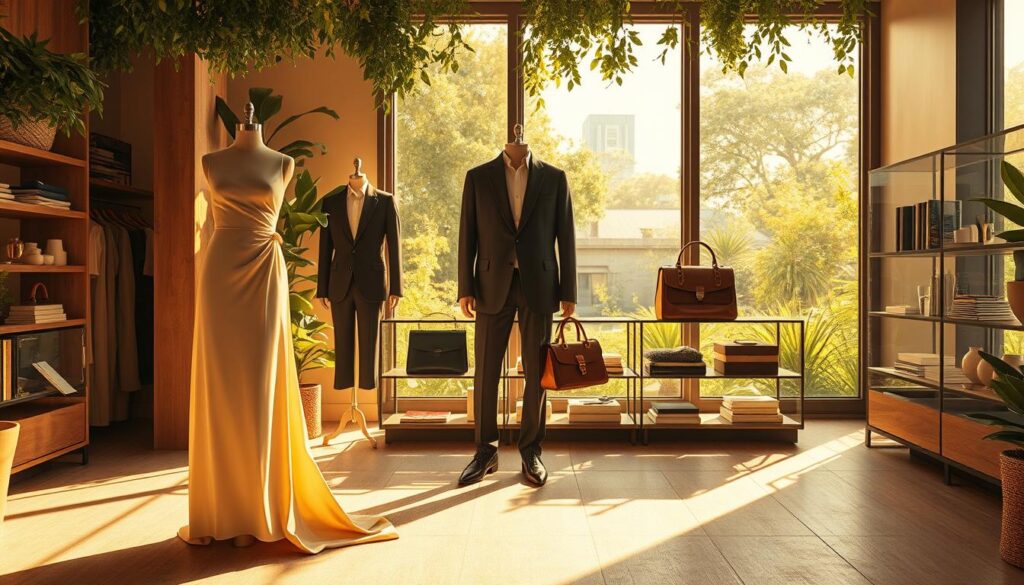
How Consumer Values Are Reshaping Luxury Brands
Consumers are increasingly making purchasing decisions based on their personal values, driving luxury brands to reimagine their approaches to design, production, and marketing. Environmental impact, ethical sourcing, and social responsibility have become key factors in brand selection.
The most successful luxury brands in 2025 are those that have authentically integrated their ethical commitments into their brand narratives, creating compelling stories that resonate with value-driven consumers. This shift has transformed what was once considered a constraint into a powerful differentiator.
The relationship between brands and consumers has evolved into a partnership, with shared values creating stronger bonds and deeper loyalty than traditional status signaling alone.
Revolutionary Materials Transforming Sustainable Luxury
We’re witnessing a paradigm shift in the luxury sector, driven by innovative materials that prioritize sustainability. This transformation is not just about reducing environmental impact; it’s about redefining luxury itself.
Innovative Fabrics and Textiles
The luxury industry is embracing a new generation of fabrics and textiles that are not only luxurious but also sustainable. NATIVA™ regenerative traceable wool is one such example, offering a regenerative and traceable alternative to traditional wool. Brands like Stella McCartney are championing these innovative materials, including Savian and grape-based vegan leather.
The use of organic cotton has become a standard practice among leading sustainable luxury brands. Certifications like GOTS (Global Organic Textile Standard) ensure that the highest environmental and social standards are met throughout the supply chain.
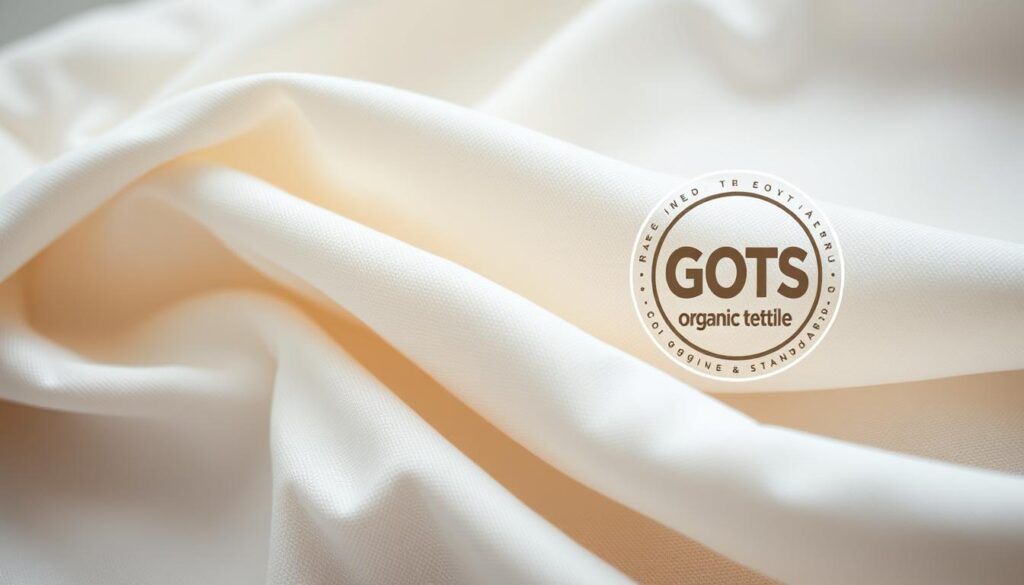
Plant-Based and Lab-Grown Alternatives
The rise of plant-based and lab-grown alternatives is providing sustainable solutions to traditionally resource-intensive luxury materials. Mylo™ mushroom leather and grape-based vegan leather are revolutionizing the fashion and accessories industries.
Innovations like lab-grown diamonds and biofabricated silks are creating new possibilities for sustainable luxury jewelry and fashion, offering ethical alternatives that match or exceed the quality of their conventional counterparts.
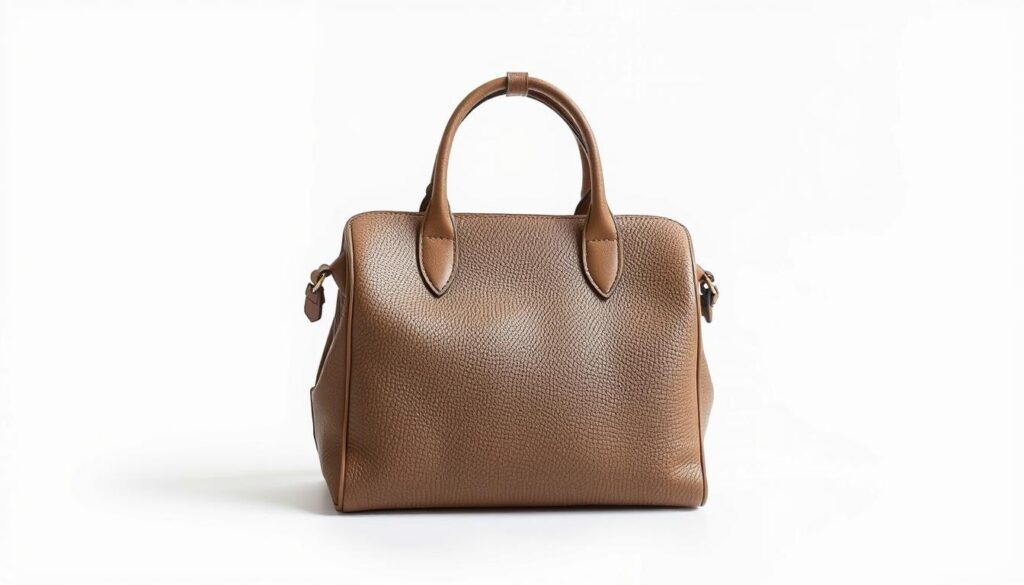
Recycled and Upcycled Luxury
The concept of waste has been completely reimagined in luxury circles, with recycled and upcycled materials now featured prominently in collections from the most prestigious houses. Brands are finding creative ways to transform everything from ocean plastic to post-consumer textiles into beautiful luxury goods.
This approach not only reduces waste but also proves that sustainability and luxury are not just compatible but complementary.
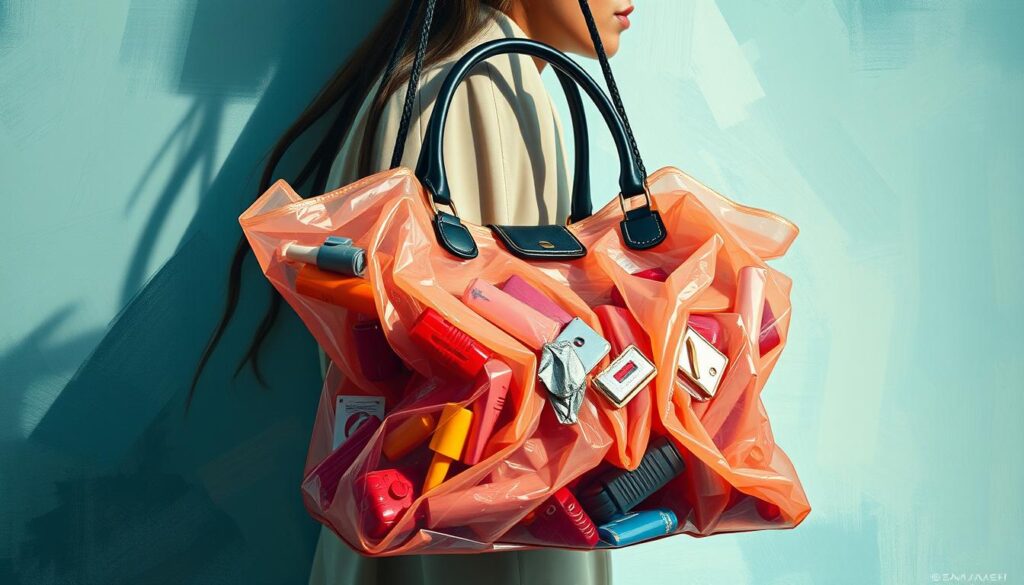
Top Sustainable Luxury Fashion Brands Leading the Way
Leading the charge in sustainable luxury fashion are brands that are redefining the industry with their commitment to eco-friendly practices. We’re proud to highlight the luxury brands that are setting new standards for sustainability in the fashion industry, demonstrating that environmental responsibility and high-end design can go hand in hand.
Stella McCartney: Pioneer in Eco-Luxury
Stella McCartney continues to lead as a pioneer in eco-luxury, maintaining her commitment to cruelty-free fashion while innovating with materials like NATIVA™ regenerative wool, grape-based vegan leather, and organic cotton. For more information on sustainable fashion brands like Stella McCartney, visit our blog on the most sustainable clothing and fashion brands.

Gabriela Hearst: Carbon-Neutral Luxury
We’ve been impressed by Gabriela Hearst’s dedication to carbon-neutral luxury, becoming the first to showcase a carbon-neutral runway in 2019 and striving to eliminate virgin materials from her collections. The brand utilizes a range of certified natural fibers, including recycled cashmere, wool, twill, and aloe-treated linen.
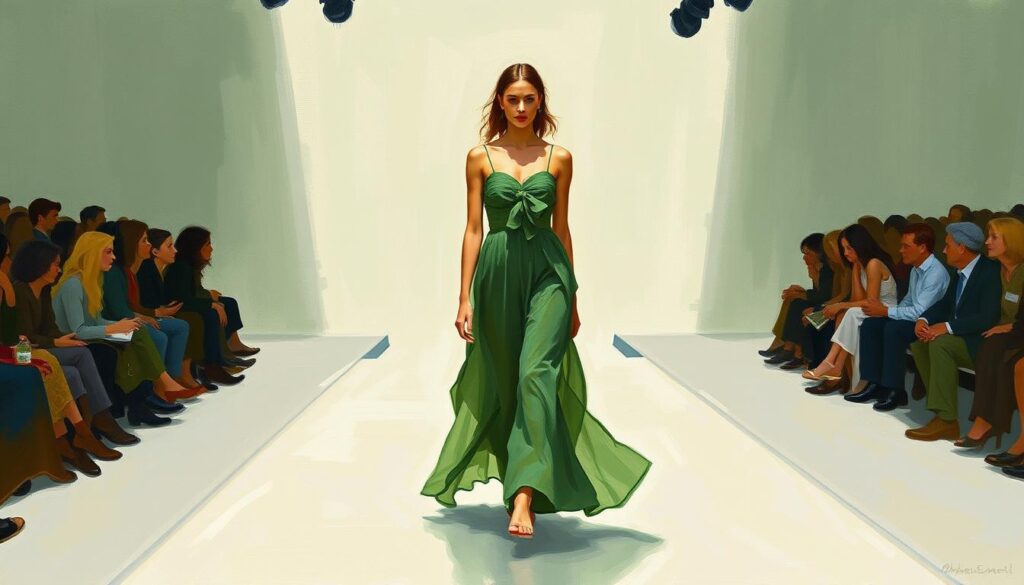
Vivienne Westwood: Iconic Sustainability
Vivienne Westwood has transformed her iconic brand into a powerful voice for sustainability, using her high-profile platform to raise awareness about human rights and climate change while integrating eco-friendly materials into her distinctive designs.
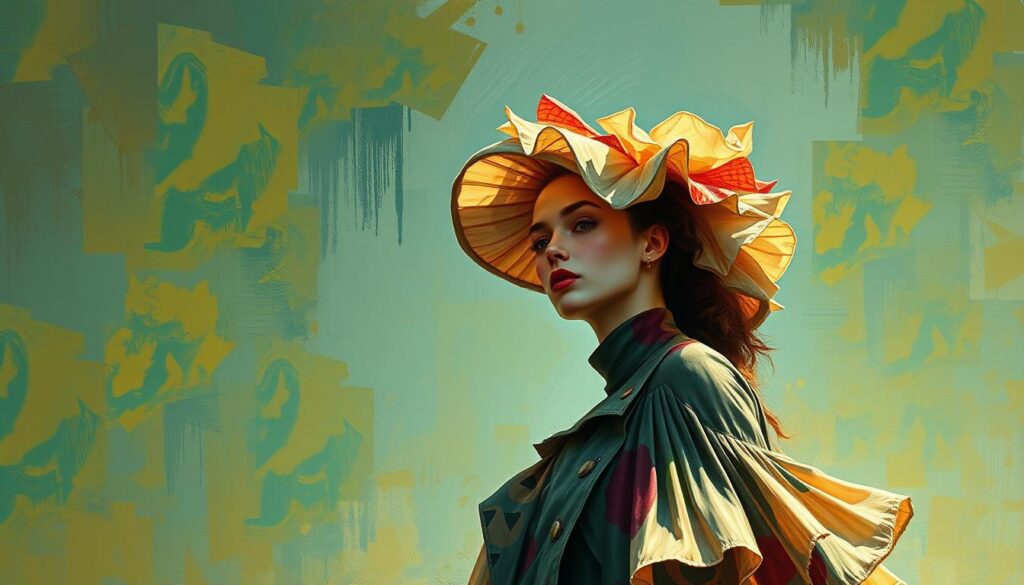
Emerging Sustainable Luxury Labels to Watch
Beyond these established names, we’re excited about emerging sustainable luxury labels that are bringing fresh perspectives and innovations to the market. Brands like Santicler, Mother of Pearl, and Arnsdorf are reimagining luxury fashion with their commitment to ethical production, transparent supply chains, and innovative sustainable materials. For insights into mastering digital marketing strategies for such emerging brands, check out our article on mastering digital marketing.

High-End Sustainable Home Goods and Accessories
We’re observing a notable expansion of sustainable luxury into the realm of home goods and accessories. This shift is driven by consumer demand for eco-friendly products that do not compromise on aesthetics or quality.
Luxury Eco-Friendly Home Decor

In the home decor sector, luxury brands are embracing organic cotton textiles, FSC-certified woods, recycled glass, and biodegradable materials to create stunning pieces that enhance living spaces while minimizing environmental impact. There’s a particular focus on craftsmanship and longevity in sustainable luxury home goods, with brands emphasizing timeless design and durability as key components of environmental responsibility.
The concept of circular design has taken hold in luxury home decor, with brands developing products that can be easily disassembled, repaired, or recycled at the end of their useful life. This approach not only reduces waste but also adds value to the items by giving them a longer lifespan.
Sustainable Luxury Accessories and Jewelry
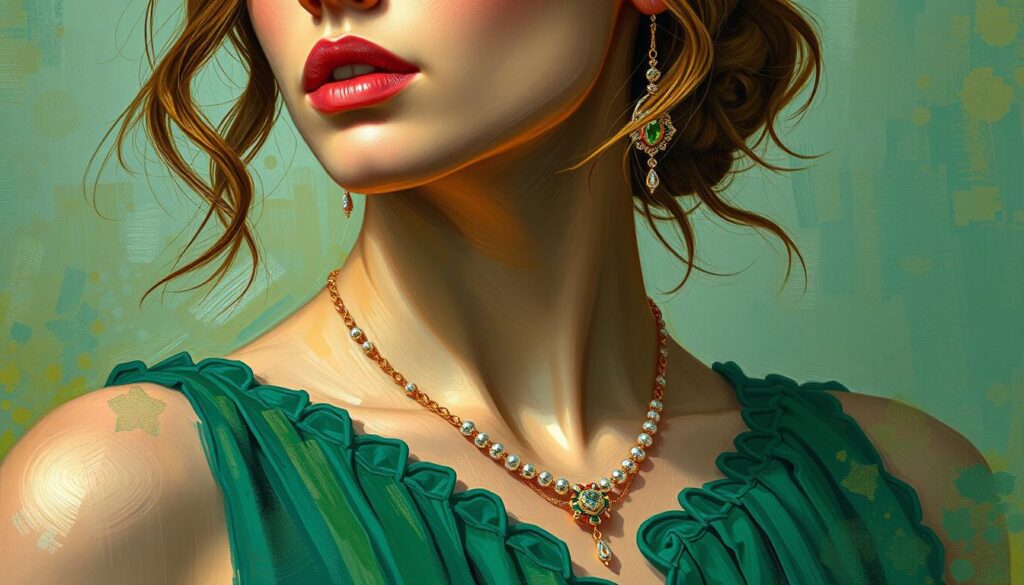
In the accessories and jewelry space, we’re impressed by the innovation happening with recycled precious metals, ethically sourced gemstones, and alternative materials like lab-grown diamonds. Luxury jewelry brands are increasingly transparent about their sourcing practices, with many adopting blockchain technology to provide customers with complete traceability from mine to market.
We’re particularly excited about brands that are finding ways to upcycle waste materials into stunning luxury accessories, transforming what would have been discarded into coveted pieces that tell a compelling sustainability story. The use of organic cotton and other eco-friendly materials is becoming more prevalent, further enhancing the sustainability of these products.
Technology and Innovation in Sustainable Luxury
As we move forward, technology and innovation are playing increasingly crucial roles in shaping the future of sustainable luxury. We’re witnessing a significant shift in how luxury brands operate, from design and production to customer experience.
Revolutionizing Shopping with AI
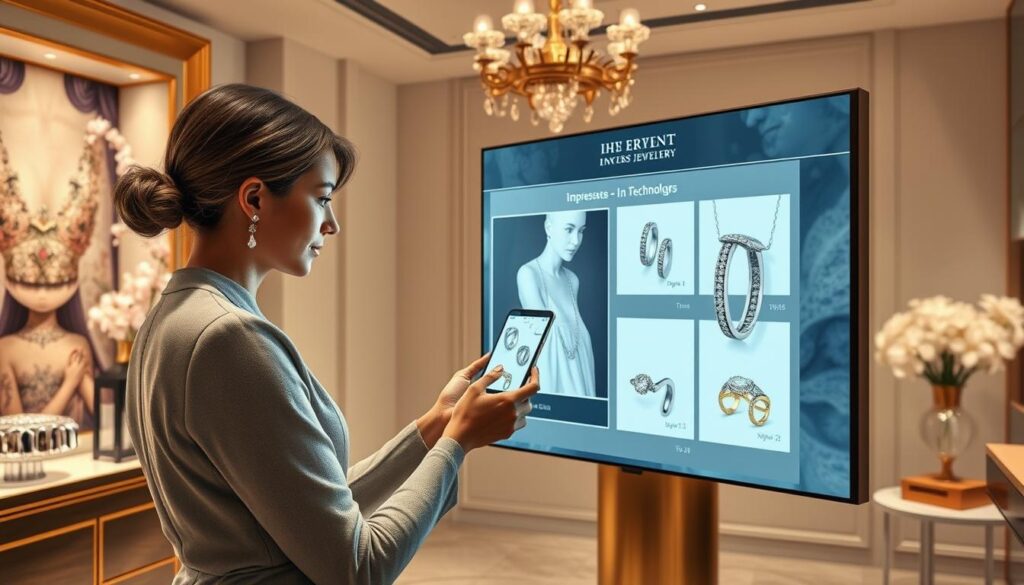
Artificial intelligence is revolutionizing sustainable luxury shopping experiences. Virtual try-on technologies, such as those developed by Atelier 79, are reducing the need for physical samples and minimizing the environmental impact of returns. This not only enhances customer satisfaction but also streamlines design processes.
We’re excited about the potential of AI to optimize production processes. Algorithms can help brands minimize material waste, reduce energy consumption, and improve efficiency without compromising quality.
Ensuring Transparency with Blockchain
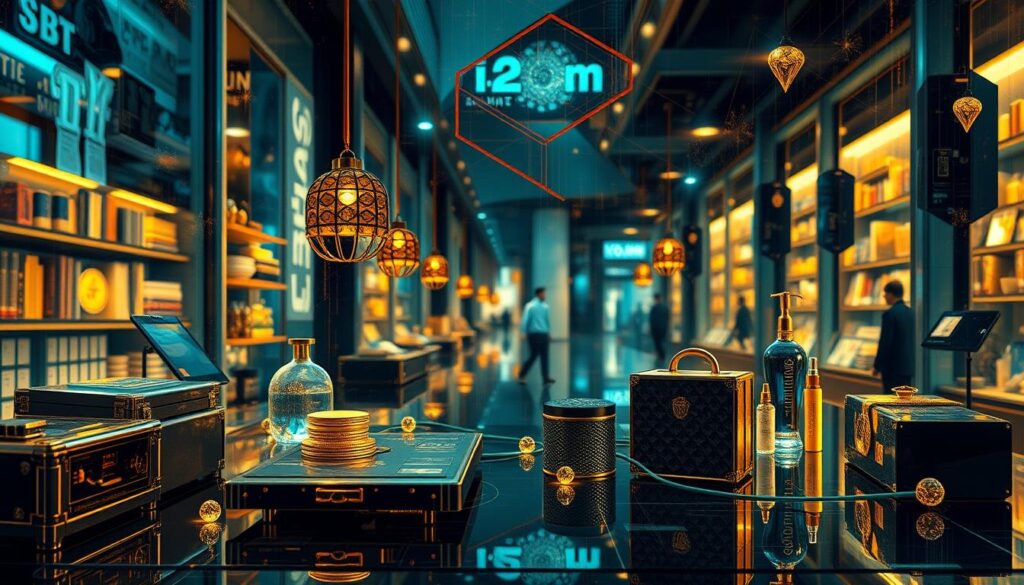
Blockchain technology has emerged as a powerful tool for transparency and authenticity in sustainable luxury. It allows brands to provide verifiable information about materials, production methods, and supply chains, addressing the challenge of greenwashing.
By enabling consumers to verify sustainability claims and trace products from raw materials to finished goods, blockchain is making sustainability more measurable and verifiable in the luxury industry.
The Future of Luxury Marketing: Storytelling and Community
We’re witnessing a paradigm shift in luxury marketing, where storytelling and community building are becoming essential strategies for brands looking to connect with sustainability-minded consumers.
Narrative Connections
Luxury brands are now focusing on creating narratives that resonate with their audience. By sharing the story behind their products, brands can create an emotional connection with consumers. This involves highlighting the craftsmanship, heritage, and values that define their luxury goods.
- Crafting compelling narratives around environmental commitments and artisanal craftsmanship.
- Transforming sustainability from a technical specification into a powerful emotional driver.
- Focusing on the people behind the products—the artisans, designers, and communities.
Sustainable Communities
Building exclusive communities around sustainable values has become a powerful strategy for luxury brands. This involves creating spaces where like-minded consumers can connect with each other and with the brand, fostering a sense of belonging and shared values.
By combining storytelling with community building, luxury brands can create a deeper, more meaningful connection with their customers, ultimately driving awareness and loyalty for sustainable luxury fashion.
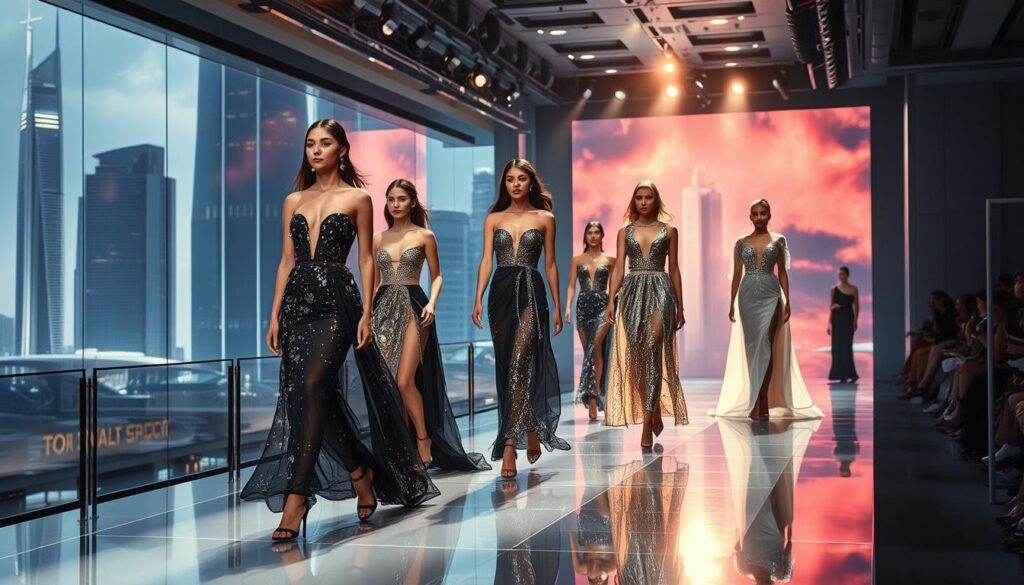
Conclusion: Embracing the New Era of Conscious Luxury
In the realm of luxury fashion, a new era is dawning, one where sustainability and style coalesce to redefine the industry’s future. As we look ahead, it’s evident that sustainable luxury is not just a trend but a fundamental shift in the industry’s foundation.
The brands that will thrive are those that authentically embrace sustainable practices while maintaining the quality, craftsmanship, and design excellence that define luxury. At CoWrit Technologies Inc, we believe that conscious luxury represents an enhancement, not a compromise, offering products that are more thoughtfully designed and crafted.
The future belongs to brands that balance tradition with innovation, exclusivity with responsibility, and luxury with purpose. We’re passionate about helping sustainable luxury brands tell their stories through our comprehensive digital marketing and content creation services. As the industry continues to evolve, we’re confident that it will create a style of luxury that’s beautiful in every way.
## FAQ
### Q: What is driving the shift towards sustainable luxury in the fashion industry?
A: We believe that consumer awareness and values are driving this change, with buyers increasingly seeking ethical sourcing and eco-friendly practices in the products they purchase.
### Q: How do luxury brands incorporate organic cotton into their production processes?
A: We see that many luxury brands are now using organic cotton and other sustainable materials in their designs, reducing the environmental impact of their products and promoting more responsible sourcing practices.
### Q: What role does water conservation play in sustainable luxury fashion?
A: We understand that water conservation is crucial in reducing waste and minimizing the environmental footprint of fashion production, and many luxury brands are now implementing measures to reduce their water usage.
### Q: How can consumers verify the ethical practices of luxury brands?
A: We recommend that consumers research the brand’s commitment to sustainability, look for transparency in their production processes, and check for certifications that ensure ethical sourcing and fair labor practices.
### Q: What is the impact of sustainable luxury on local communities?
A: We believe that sustainable luxury can have a positive impact on local communities by promoting fair labor practices, supporting local artisans, and contributing to the preservation of traditional craftsmanship.
### Q: How are luxury brands using recycled and upcycled materials in their products?
A: We observe that many luxury brands are now incorporating recycled and upcycled materials into their designs, reducing waste and promoting a more circular economy in the fashion industry.
